Strategic Plan
Advisory Board
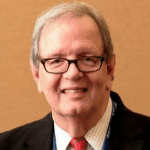
Robert Ansley, FAICP
President Emeritus
Orlando Neighborhood Improvement Corp.
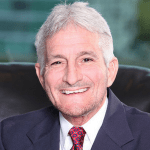
Owen Beitsch, Ph.D., FAICP, CRE
Senior Principal
Real Estate Research Consultants Inc./GAI Consultants
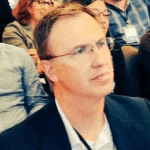
Bill Burns, Ph.D., PE, AICP
Retired
City of Orlando

Emily Bush (Hanna), AICP, CPM
Executive Director
Bike/Walk Central Florida
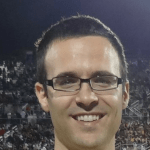
Jacques Coulon, AICP
Mobility Innovation Manager
City of Orlando
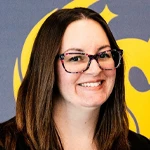
Heather Croney, AICP
Senior Planner
Lake County Schools
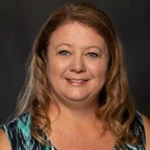
Tina Demostene, AICP
Land Entitlement Manager
M/I Homes, Inc.
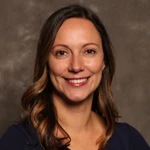
Roberta Fennessy, AIA, AICP
Director of Planning and Design
VHB
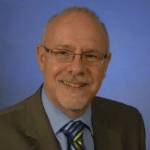
Dean J. Grandin, Jr., Ph.D.
Retired
City of Orlando
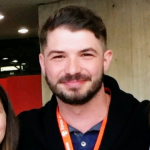
James Hartsfield
Planner
VHB
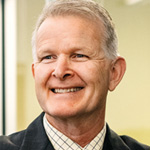
Gary Huttmann, AICP
Executive Director
Metroplan Orlando
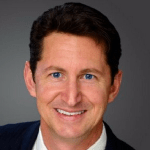
Jason McGlashan, PE
Sr. Vice President, Transportation Program Delivery Services Director
HDR Engineering
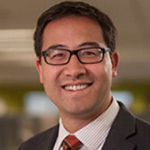
Curtis Ostrodka, AICP
LEED AP
Director of Community Planning, VHB
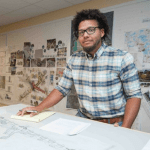
Patrick Panza, AICP
Program Director
Bike/Walk Central Florida
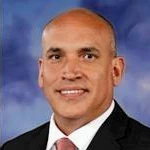
Alberto Vargas, AICP
Planning Manager
Orange County Government
Strategic Plan
Mission
The Master of Science in Urban and Regional Planning ("MSURP") program provides superior graduate education to current and prospective planning professionals in the public, private, and nonprofit sectors. Administered with key social, environmental, and technological landscapes in mind, the program addresses the local to global needs for professional planners, preparing them to become leaders regionally and internationally. This requires employing critical and analytical thinking to devise and implement real-world solutions to the planning issues of today and beyond. Utilizing experiential learning, facilitated by Central Florida's unique planning environment, the curriculum focuses on an interdisciplinary approach providing students an integrative and comprehensive perspective on planning and management to promote more diverse, equitable, sustainable, and inclusive environments locally, nationally, and globally.
Vision
The Master of Science in Urban and Regional Planning program is the preferred program of choice in the state of Florida, providing the highest quality, diverse, integrative, applied graduate education to prepare more sustainable communities for careers in urban and regional planning. As a national model of community partnership and service, the program is to develop well-balanced graduates who will be prepared to address challenging planning issues in a socially just and equitable manner, all within evolving metropolitan and natural environments.
Values
In a spirit of collegiality and collaboration, the MSURP program fosters partnerships with our local community, other college and university departments, and the academic and professional community at large. The program promotes leadership through adherence to the highest standards of ethical conduct. The program promotes leadership through adherence to the highest standards of ethical conduct.
Strategic Plan Goals 2022-2027
Goal 1: Increase the recognition and outreach of the program.
Goal 2:Strengthen the curriculum to train students as future leaders
Goal 3: Make the program accessible
Goal 4: Recruit and retain high-quality faculty and students
Projects
Also referred to as the M.S.URP Studio, the capstone course provides students with the opportunity to partner with local counties and cities to develop applied planning projects based on the knowledge and skills developed in the program. At the end of the semester, students present their final reports to representatives of the partnering organization.
Capstone students were invited to participate in a multi-faceted project to create a vision plan for a section of the Kirkman Road corridor, which is primarily situated within the City of Orlando. The purpose of the proposed vision plan was to identify opportunities and challenges that will face Orlando over the next 20 years in redeveloping the area as well as to engage area residents in civic life.
Attainable Housing Development Model
This report presented an attainable housing development model for the Central Florida area.
Social Determinants of Health: Age-Friendly Recreational Needs for Populations within Orange County
This report examined the recreational needs, specifically recreational facilities, for various populations within Orange County, Florida.
Assessing Development Impacts: Parramore ACE School Zone
This capstone project summarized the social and physical changes to Parramore, a community located in the heart of Orlando, and provided solutions to address safety issues within the area.
Fiske Boulevard Neighborhood Study
Students conducted an assessment of current conditions, summarized resident input during the planning process and outlined recommended improvements for community engagement for the Fiske Boulevard Neighborhood in Cocoa, Florida.
The report offers a detailed background and analysis of Downtown Apopka, covering land use, demographics, infrastructure, market trends, and urban form. Key findings and ten guiding principles shaped the development of five projects aimed at transforming Downtown Apopka into a vibrant town center. Designed by Capstone students with input from the City of Apopka, public agencies, private organizations, and UCF faculty, the projects include a marketing plan, U.S. 441 redesign, Complete Streets application, a pocket park system, revitalization of Martin’s Pond, and a housing toolkit. The Downtown Apopka Vision Plan provides a roadmap for both short- and long-term improvements to create a safer, more active downtown.
Mentoring an Urban Knight Program
Mentoring is the personal and professional development of a student through the experienced planner, a knowledge sharing and career development opportunity, and about the desire for setting goals and accepting challenges. The mentoring program provides UCF MSURP students with the opportunity to develop their skills and professional network by pairing them up with practicing planners through American Planning Association Florida Chapter Orlando Metro Section.